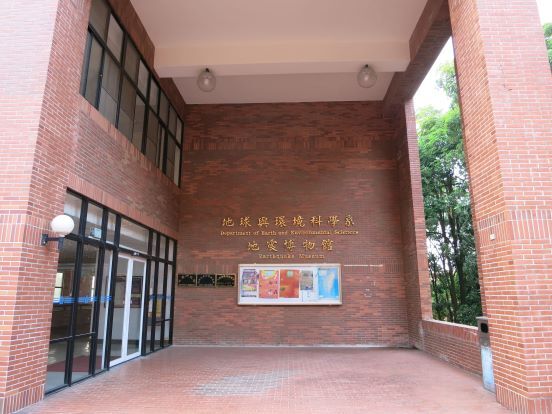
History
Taiwan is situated on the collision boundary between the Philippine Sea Plate and the Eurasian Plate, resulting in frequent earthquakes that make Taiwan vulnerable to natural disasters. To promote seismological researches in different spectrums, the first research institute of Seismology in Taiwan was founded in the National Chung Cheng University in 1990. The Institute of Applied Geophysics was established as well in the university in 1994. In 1997, the Ph.D. graduate program in seismology was also launched to nurture prospective students in becoming advanced seismologists. In 2002, the undergraduate program covering the fields of earth sciences and environmental sciences was started in the university. The aforementioned programs were integrated in 2009 and became what we know now as the Earth and Environmental Sciences Department (EESD).
Research
EES is the only academic department in Taiwan that integrates seismology, geophysics, geological sciences and environmental sciences in one organization. In accordance with the current development of earth and environmental sciences around the world, where environmental issues, natural hazard mitigation and energy resource exploration are popular subjects, EESD and the Department of Biomedical Sciences offer a joint program titled Environmental Biotechnology, which will lead students to become a multidisciplinary professional in environmental sciences.
I. Seismology
Strong ground motion estimation and simulation, active faults study, numerical modeling in seismic wave propagation, earthquake geology, active structures study, earthquake source physics and mechanisms.
II. Geology and Geophysics
Environmental geology, structural geology, numerical geodynamic modeling (oil exploration, earthquake disaster prevention), non-destructive ultrasonic testing, geophysical and seismic exploration technology (engineering geophysics, deep structure imaging techniques, propagation and scattering of acoustic waves, electromagnetic waves and elastic waves in random media, and geodesy).
III. Environmental pollutions analysis and sustainable use of natural resources
Remediation and monitoring environmental pollutions, environmental chemistry, water resource investigation and monitoring, nano-engineering in microorganism, ecology, and global environment change.
Curriculum Regulation

Career Opportunities for Graduates
1. Environmental Science Industry and Government:
Petroleum companies, engineering consultant companies, public/private education institutions, research institutes/centers, and the Central Weather Bureau.
2. Professional Certification:
Applied Geotechnical Technician Certificate and Environmental Engineering Technician Certificate.
3. Advanced Academic Opportunities Abroad:
Students can enroll in programs such as geology, geophysics, geodesy, earth sciences, environmental sciences, and environmental engineering.
Contact Information
Tel:+886-5-2720411 ext. 61201、61209
Fax:+886-5-2720807
Email: seismo@ccu.edu.tw ; seismo@eq.ccu.edu.tw
Website: https://eq.ccu.edu.tw/?Lang=en
